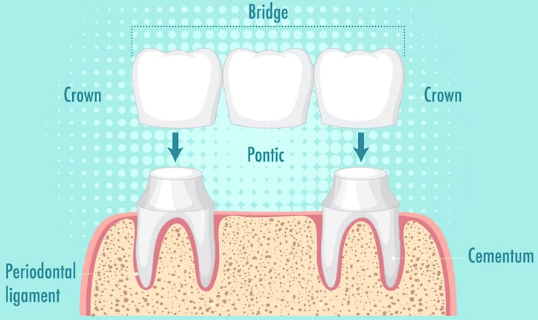Questions to Ask Your Dentist About Dental Crown and Bridge Treatments
“Crowns and Bridges: What to Ask Your Dentist Before Treatment”
If you have damaged, missing, or decayed teeth, your dentist may recommend dental crown and bridge treatments. These procedures can help restore your smile and improve your oral health. However, before undergoing any dental procedure, it’s important to be informed and ask questions. Here are some important questions to ask your dentist before getting a dental crown and bridge treatment.
What Are Dental Crowns and Bridges?
The first thing you should understand is what dental crowns and bridges are. A crown is a cap that is placed over a damaged or decayed tooth to restore its shape, size, and strength. A bridge is a dental restoration that is used to replace one or more missing teeth. It consists of one or more artificial teeth, known as pontics, that are held in place by dental crowns on either side of the gap.
Do I Need Dental Crowns or Bridges?
Your dentist in The Colony will evaluate your oral health and determine if you need dental crowns or bridges. If you have a decayed or damaged tooth that cannot be restored with a filling, your dentist may recommend a crown. If you have one or more missing teeth, a bridge may be recommended to prevent the remaining teeth from shifting and causing bite problems.
What Are the Different Types of Crowns and Bridges?
There are different types of dental crowns and bridges, including porcelain, ceramic, metal, and composite resin. Each type has its own advantages and disadvantages, so it’s important to discuss your options with your dentist to determine which is best for your specific needs.
How Long Will the Treatment Take?
The duration of dental crown and bridge treatments will depend on your individual situation. In most cases, the process will take at least two appointments. During the first appointment, your dentist will prepare the damaged or decayed tooth, take impressions of your teeth, and place a temporary crown or bridge. The permanent restoration will be placed during the second appointment, typically two to three weeks later.
How Will I Care for My Dental Crown or Bridge?
Dental crowns and bridges require regular care and maintenance, just like your natural teeth. You should brush and floss your teeth twice a day and avoid chewing on hard or sticky foods. Your dentist in The Colony may also recommend special dental products, such as floss threaders or interdental brushes, to help you clean around the restoration.
What Are the Risks and Benefits of Dental Crowns and Bridges?
It’s important to understand the risks and benefits of any dental procedure before undergoing treatment. Dental crowns and bridges can help restore your smile and improve your oral health, but they do come with some risks, such as the possibility of infection or damage to the underlying tooth structure. Your dentist can discuss these risks and benefits with you in detail.
What Can I Expect During and After the Treatment?
During the dental crown or bridge procedure, you will receive a local anesthetic to numb the affected area. You may experience some discomfort and sensitivity after the procedure, but this can usually be managed with over-the-counter pain relievers. Your dentist will provide you with instructions on how to care for your restoration and what to expect during the recovery process.
Dental crown and bridge treatments can help restore your smile and improve your oral health, but it’s important to ask your dentist questions and be informed before undergoing any procedure. By understanding the types of crowns and bridges available, the risks and benefits, and what to expect during and after the treatment, you can make an informed decision and ensure the best possible outcome for your oral health. If you have any questions or concerns about dental crown and bridge treatments, talk to your dentist or schedule your appointment today.





 |
|